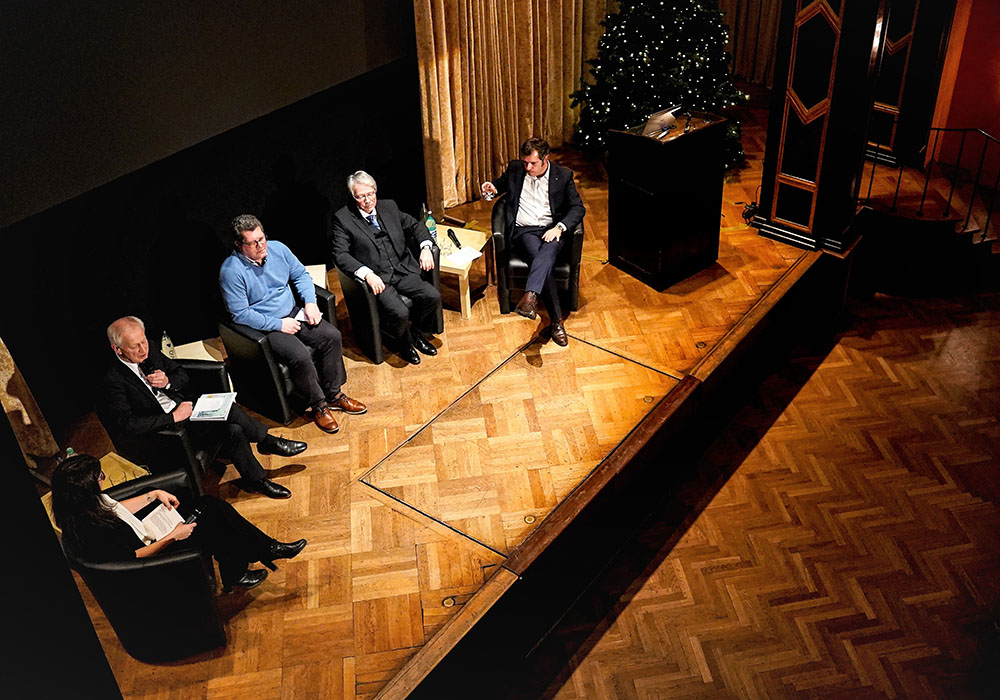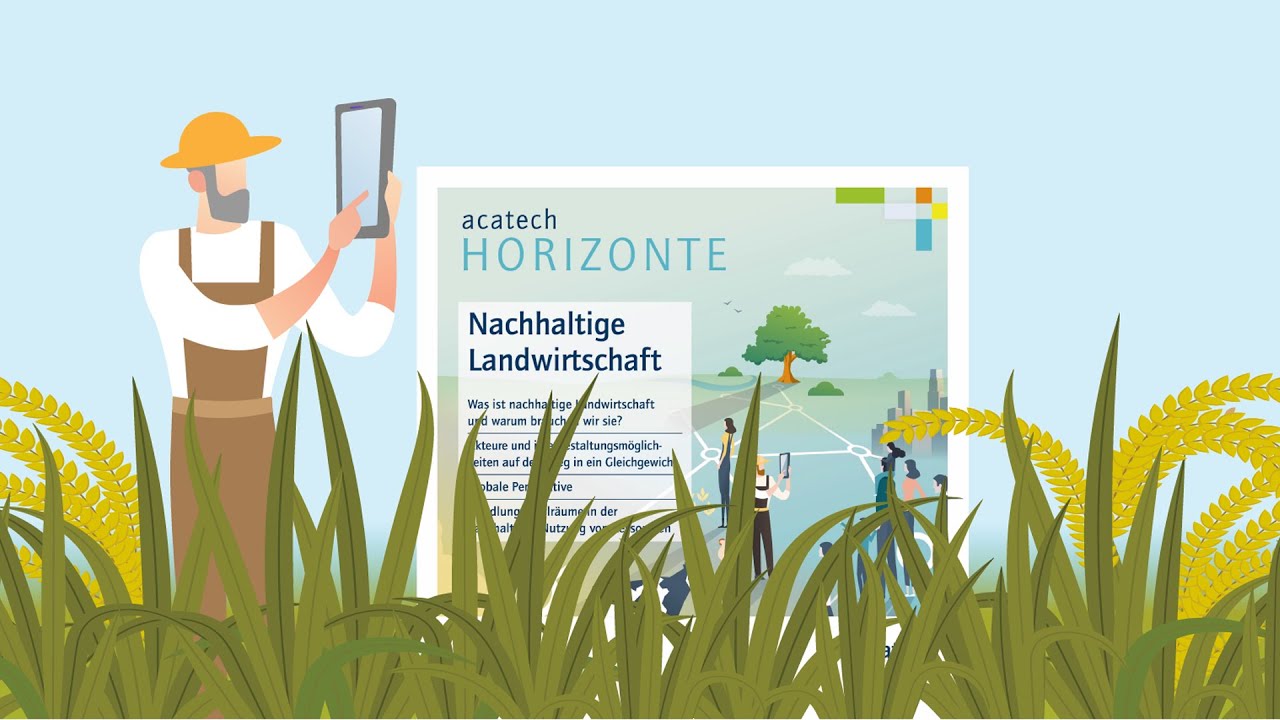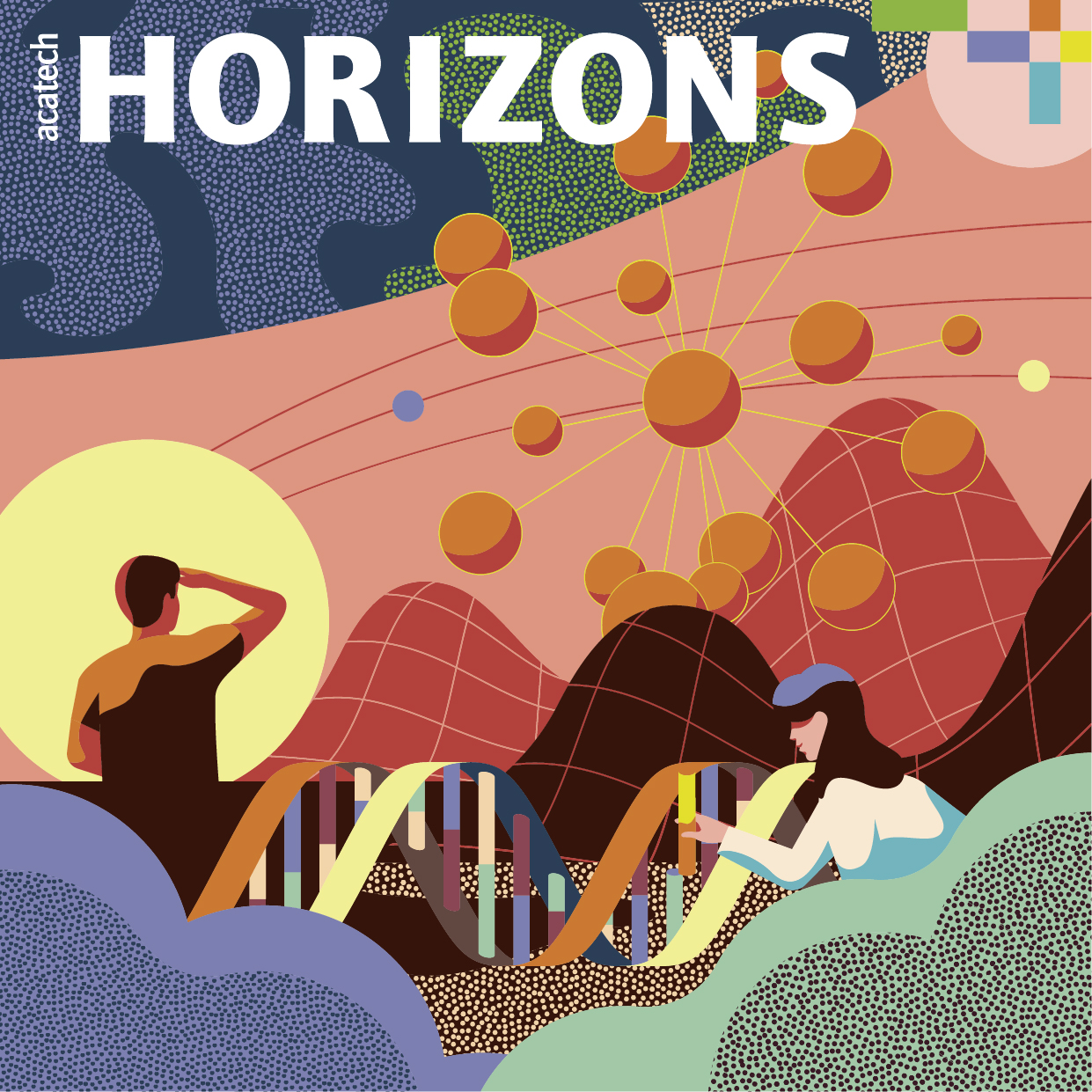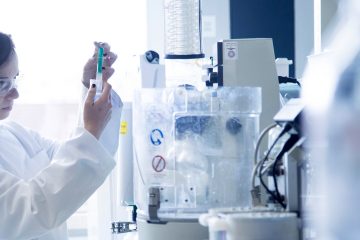New acatech HORIZONS publication on sustainable agriculture launched to coincide with Agricultural Summit

Munich, 05 December 2019
What might sustainable agriculture look like in the future? And which basic conditions must be met to enable this vision? These questions are addressed by the third publication in the acatech HORIZONS series, launched at the Münchener Künstlerhaus on 3 December 2019. On the day after the “Agricultural Summit” at the Federal Chancellery, the Academy hosted a discussion with experts from the agriculture and food production sectors. This was followed by an “acatech am Morgen” event on 5 December, where working group chair Hans-Georg Frede met with deputies of the Bavarian State Parliament to discuss ways of strengthening the focus on agriculture within education.
The decline in biodiversity, factory farming, unsafe concentrations of nitrates in the groundwater, and convoys of tractors shutting down Germany’s major cities – the events and debates of recent months confirm the importance of sustainable agriculture as a highly topical issue. “We are still some way off a sustainable agriculture system that comes close to satisfying the requirements of all the different groups in society. We can get there, but we will only succeed if all the actors – consumers, farmers and policymakers – engage in a constructive dialogue with each other”, said Hans-Georg Frede, chair of the working group responsible for the latest acatech HORIZONS publication, at its launch in the Münchner Künstlerhaus. The new publication aims to highlight the critical role of dialogue in finding an equilibrium between the three dimensions of sustainable agriculture: social acceptance and acceptability, environmental balance and economic viability.
Who is responsible for delivering sustainable agriculture?
Andreas Möller, author of the award-winning book “Zwischen Bullerbü und Tierfabrik – Warum wir einen anderen Blick auf die Landwirtschaft brauchen” (Between Bullerby and Factory Farming – Why we need a different perspective on agriculture), believes that tackling the challenge of sustainable agriculture is the responsibility of society as a whole: “The Agricultural Summit in Berlin, the farmer demonstrations and other protests such as the erection of green crosses in fields throughout Germany are a clear indication of the urgent need for a different approach to agriculture. All too often, the problems arising from the tensions between regulatory standards, the global market and falling producer prices are blamed on farmers alone, when in fact they need to be addressed by society as a whole, and not least by each and every one of us as consumers.”
acatech HORIZONS: What might sustainable agriculture look like in the future? (German content)
Referring to the farmer protests during the Agricultural Summit, Bayerischer Bauernverband (Bavarian Farmers’ Association) representative Stefan Köhler called for an objective, nuanced and evidence-based dialogue between all the stakeholders. He highlighted the plight of farmers who claim that their livelihood is being threatened by the public’s environmental demands. Several national regulations such as the Fertiliser Ordinance – which was adopted in order to address the nitrates issue – are incompatible with specific regional circumstances in the agricultural sector. Stefan Köhler also underlined the potential of digitalisation, for instance to reduce fertiliser use.
Agriculture and food inextricably linked
A lot of research is currently being conducted into new forms of food production. This research can help to make food production more sustainable, in keeping with the UN Sustainable Development Goals, for example. In his presentation, Stephan Becker-Sonnenschein of acatech partner organisation Global Food Summit presented a number of innovative new food technology solutions. These included biotechnology techniques such as CRISPR/Cas, alternative protein sources and even indoor farms in big cities. “We will of course always need food from the land. However, there is no denying that agriculture faces changes as a result of AI technology, especially amid strong calls to adopt urban concepts of sustainability. The food supply chain must anticipate these changes in plenty of time and make targeted preparations for them”, said Stephan Becker-Sonnenschein.
acatech am Morgen at the Bavarian State Parliament: How can the topic of sustainability be embedded in education?
Two days after the launch of the latest acatech HORIZONS publication at the Künstlerhaus, working group chair Hans-Georg Frede presented its key messages on behalf of the Academy to a group of deputies of the Bavarian State Parliament. Guest expert Uta Löhrer from the Bayerische Landeszentrale für politische Bildungsarbeit (Bavarian State Centre for Political Education – BLZ) outlined ways in which the topics of sustainable agriculture and sustainable consumption can be embedded in education in order to raise awareness among the public. She explained that the BLZ’s role is to help teach the public tolerance, values and life skills, for instance through the inclusion of environmental education in political education courses.
According to Ms Löhrer, “We need informed citizens who are capable of asking the right questions. Consequently, it is up to us to educate them from an early age.” She proposed participatory formats such as simulations and simulation games as suitable teaching methods for integrating sustainable consumption into education programmes. One example developed by acatech, the BLZ and the CAP (Center for Applied Policy Research) is the concept of a research lab where schoolchildren from urban and rural areas can engage in a dialogue with each other.
About acatech HORIZONS
The “acatech HORIZONS” series explores technology fields that are fundamentally transforming our everyday lives but are still affected by uncertainty concerning their potential impacts. In this series, acatech aims to analyse and evaluate these technologies in a manner that is comprehensive but also clear and easy to understand. The “acatech HORIZONS” publications are the product of a broad dialogue process. An advisory committee comprising figures from academia, industry and government as well as technology communication experts and members of the start-up scene helps acatech to select the topics covered by the series.





